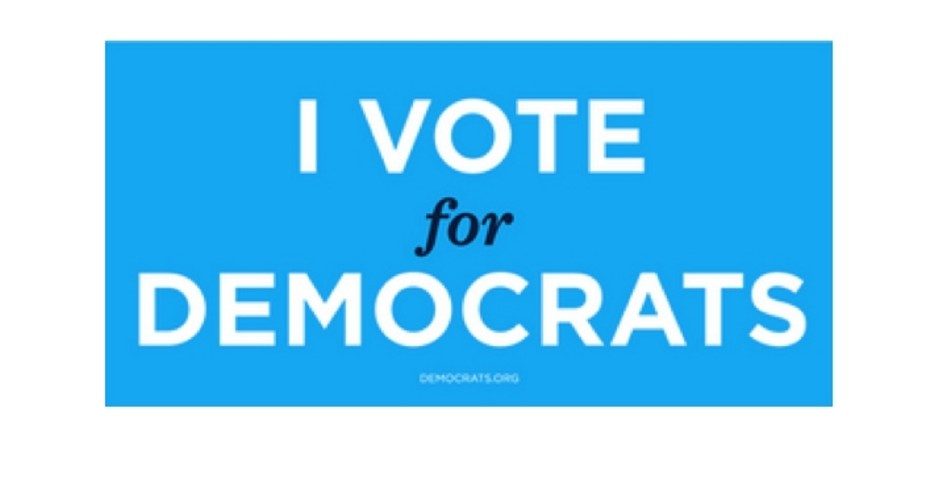
In 2008, presidential candidate Barack Obama introduced a ban on donations from federal lobbyists and political action committees (super PACs). Obama promised voters at the time, “We are going to change how Washington works.” The Democratic National Committee (DNC) has now seen fit to roll back those guidelines in a move that unabashedly favors Democratic presidential candidate Hillary Clinton over fellow Democratic Party contender Bernie Sanders.
Mark Paustenbach, deputy communications director for the DNC, stated in an e-mail, “The DNC’s recent change in guidelines will ensure that we continue to have the resources and infrastructure in place to best support whoever emerges as our eventual nominee. Electing a Democrat to the White House is vital to building on the progress we’ve made over the last seven years.”
At this point the rules and regulations brought about in 2008 have been all but eliminated. The only remnants still in effect are regulations prohibiting lobbyists and super PAC representatives from attending events that feature President Obama, Vice President Biden, or their spouses.
Regulations stipulate that candidates may accept only $2,700 per election from individuals. However, groups outside the campaigns, such as super PACs, are not subject to those limits. And as the monies pour in, Clinton’s willingness to accept such funds has placed her at a distinct advantage over Sanders. Now in a heated election cycle in which both of the leading Democratic candidates have made campaign-finance reform a major campaign issue, Sanders has steadfastly refused to accept funds from the super PACs.
On the other hand, Clinton has had no such qualms. The New York Times reported that at the end of 2015, she had received $7.9 million from super PACs, in spite of this statement on the website hillaryclinton.com: “Americans are understandably cynical about a political system that has been hijacked by billionaires and special interests who will spend whatever it takes to crowd out the voices of everyday Americans.” Apparently, Clinton would be happy to undertake campaign finance reform, just as soon as she’s elected president.
Calls are beginning to resonate from corners of the Democratic Party for the resignation of the current DNC Chairman Debbie Wasserman Schultz. Co-chair of Hillary Clinton’s failed 2008 presidential bid, Schultz (who also accepts PAC funds) has been accused of heavily favoring Clinton in both the financial arena and the debates — the latter of which have been called poorly scheduled and too few in number. On top of her unabashed favoritism of Clinton over Sanders, Schultz is presiding over a Democratic National Committee that began 2016 millions of dollars in debt, and continues to run a deficit each month — far behind its counterpart, the Republican National Committee.
In December 2015, Hillary attended an event for the Hillary Victory Fund, a joint fundraising committee for Hillary for America, the Democratic National Committee, and the Democratic committees of 32 states and Puerto Rico. With approximately 160 guests in attendance, the event raised more than $5 million.
Under the 2008 campaign finance regulations, a single donor would max their giving at about $30,000 by donating the maximum amount not only to their candidate of choice, but — as Obama asked donors at the time — to the DNC and other related committees. Now by comparison, Clinton’s campaign may request nearly three-quarters of a million dollars from each donor by giving maximum amounts not only directly to her personal campaign, but maximum amounts to the DNC and each state party as well. By routing the funds through a joint fundraising committee, the entire process may be accomplished with a single check. What’s more, the contribution limits reset for party committees on January 1, 2016 and donors who are willing and able could contribute the maximum amounts again.
While campaign finance law had previously dictated a maximum amount one person could give to a federal election candidate over the course of a single election cycle, in the 2014 McCutcheon ruling, the Supreme Court said the limit was unconstitutional. Now as lobbyist and super PAC monies roll in to both her personal campaign, as well as the DNC, Hillary is making the best of the situation and raking in the funds.
As of December 31, 2015, the Hillary Victory Fund had raised nearly $27 million. A substantial amount of those funds went directly to the DNC and other Democratic candidates across the nation. Thirty-three state Democratic parties have now signed agreements with the Hillary Clinton campaign; essentially Clinton has used lobbyist and super PAC funds to purchase the support of Democratic leaders across the country. As Bloomberg stated in a recent article:
Clinton’s move last year to lock in fundraising alliances with 33 state Democratic parties has already added $26.9 million to the mountain of hard money she has raised so far, a Bloomberg analysis of Federal Election Commission filings shows. Bernie Sanders, her competitor for the nomination, has inked one such deal, netting a total of $1,000.
New Hampshire is one such state that obviously has a quid pro quo relationship with Clinton. The state received $124,000 from the Hillary Victory Fund, and while 60 percent of the primary vote favored Sanders over Hillary, all six available superdelegates have chosen to support Hillary.
Enacted in 1984, the Democratic Party superdelegate system sought to give more influence and control of the nomination process to Democratic members of Congress and state party chairs. At the time of implementation, the total number of superdelegates was 14 percent of the total delegates. Over the years that number has increased, and today superdelegates are 20 percent of the total.
At this point, if Clinton continues to funnel funds to state Democratic Parties, her influence on that 20 percent could literally take the Democratic nominee for president out of the hands of voters and put it into the obviously deep pockets of Hillary Clinton.



